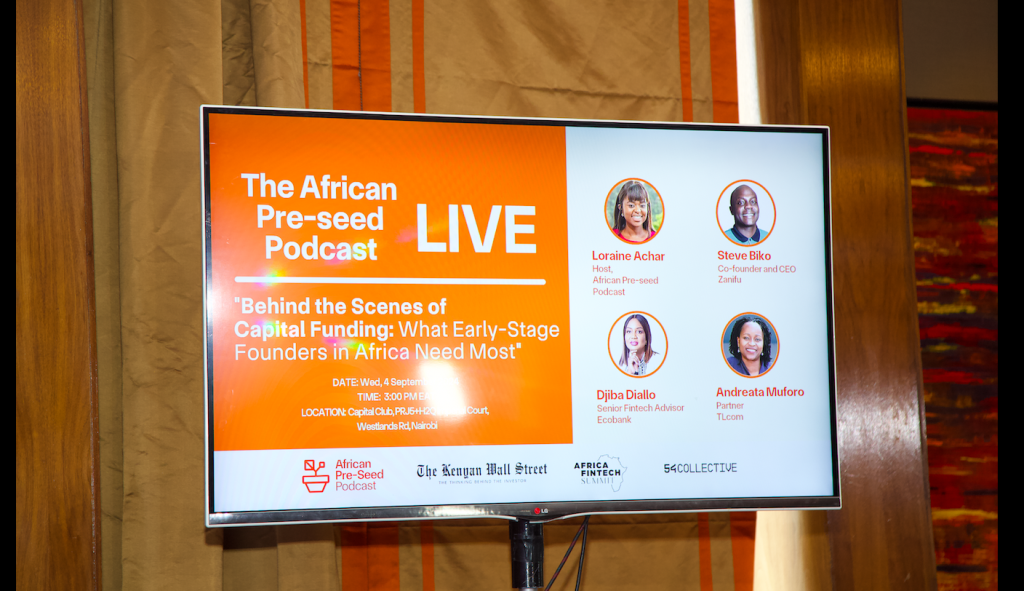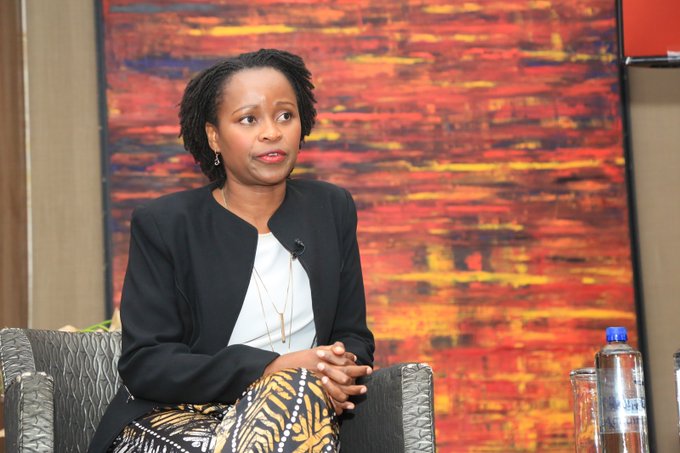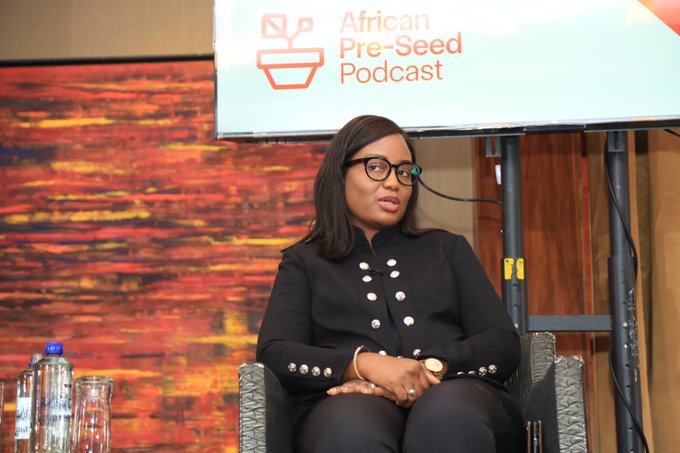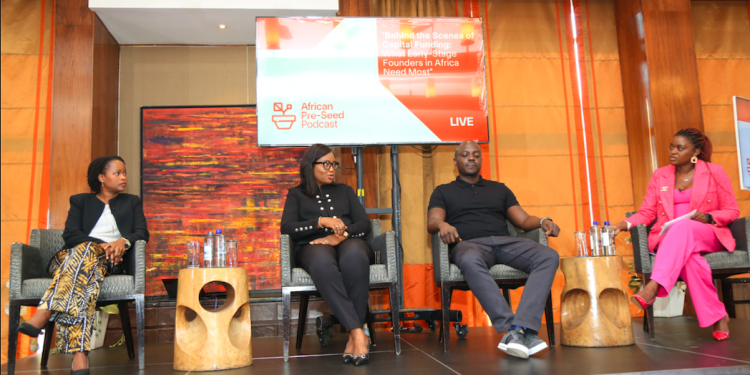During the African Pre-Seed Live podcast convened by Pan-African VC 54 Collective sector stakeholders sought to define the new model that both investors and innovators should employ in their perception of startup funding.
Startup funding in Africa slumped in 2023 by 36% compared to 2022, signalling a shift in the future prospect of capital injection into the ecosystem. The crunch was not just a continental phenomenon, but a prevailing reality in many other continents where startups enjoyed decades of generous investment.
Due to macroeconomic challenges, capital was either withheld or invested in less risky enterprises. Startups with initially high valuations and runaway burn rates had to slash costs by retrenching staff or downscaling market operations. A few others went under administration, incapable of adjusting to the cramped space.
This year, the ecosystem had to rethink its strategies. Venture Capitalists and innovators now have to factor in their operations, the efficacy of their models in optimally utilizing every cent. It is not just about raising capital, but devising a blueprint on which type of capital would work for your innovation and supplementing it with non-capital support.
Insights from African Pre-Seed Podcast by 54 Collective

During the African Pre-Seed Live podcast convened by Pan-African VC 54 Collective sector stakeholders sought to define the new model that both investors and innovators should employ in their perception of startup funding.
“We kinda need a basket of different types of capital because not every business is a venture business, and that’s okay. What they need is debt or private equity, or neither. Because I think there is another piece of it, which is the ambition of the founder, the definition of success for you,” said Andreata Muforo, partner at TLCOM Capital, a panelist at the event.

The speakers agreed that Africa’s startup ecosystem had grown exponentially over the decade. In 2015 when Africa’s total funding stood at US$ 215 million, it was inconceivable that the number would triple over the years to almost US$ 3.5 Billion. Last year, according to industry analysts, was not a symptom of doom but a point of re-evaluation.
The growth of the ecosystem in Africa has made it a complex environment that reckons founders and VCs to restructure funding channels if survival is desired. Different forms of capital will be crucial henceforth, therefore, founders need to pinpoint their ambitions with enhanced precision to align themselves with investors willing to employ those means of funding that are invaluable to their goals.
“The main message here is that as a founder, when you are raising capital, you need to align yourself with the different objectives depending on the investors you’re targeting and understanding what is driving some of these investors,” said Loraine Achar, an investment manager at 54 Collective.
“All these different forms of capital have a place to play in the ecosystem and there is a balance that needs to be found in the ecosystem,” Loraine added.
The other key aspect that has long been ignored in the innovation ecosystem in Africa is the existence of alternative forms of support which do not necessarily involve capital. While money is good, and can spur growth by accelerating the acquisition of input and peak technology, founders with a vision also need a network to connect them to other brilliant innovators who can impart more knowledge, leading to collaborative growth.
54 Collective has realized the indelible role of mentorship and concerted support for its founders and aims to exercise it indefinitely in its operations. The VC helps founders to identify weaknesses in their overall enterprise, linking them to experts in product development, fundraising, strategic corporate partnerships to streamline market expansion.
“While capital is important and is a key resource for success for a lot of founders, it is not the only thing that can drive success for businesses. Through our Venture success platform, we offer tailored support to startups, to founders through venture specialists across multiple facets,” said Loraine.

Another panelist during the live podcast, Djiba Diallo – Senior Fintech Advisor in Ecobank Transnational – said that corporates are always willing to work with smart innovators who were resourceful in attracting customers and improving the efficiency of their products through digital solutions. In turn, founders with a utilizable solution are unlikely to face funding constraints and scaling challenges.
“The reality is that banks are not attractive to the population but they are very keen to use fintech solutions. So the more those fintechs bring in more customers as banks, the more we are keen to partner with them,” said Djiba Diallo.
Startup founders have also been encouraged to adapt their solutions to the needs of the capital market. This includes diversifying their investors as well as staking fair valuations that VCs can be willing to invest in. It is only by being fluid that innovators cam navigate the pipeline of capital with its varying diameters.
“It could be a fantastic market, great company, but if the valuation doesn’t make sense for me as an investor, I wouldn’t invest,” said Andreata Muforo.
During the interactive session, attendees also gave their opinions on the unexplored opportunities that fintechs could tap in the future. These include areas in data protection, which have attracted greater attention in developed countries. The travel industry in Africa which generates US$ 300 billion yearly is also unfallowed ground for integrated travel techs.
These unique points for exploration arw great avenues for attracting funding as investors are keen on perceiving areas that will guarantee greater returns. Unexplored territory can be risky to invest in, but once navigated with tact and resilience, the revenues obtainable can be immense.
ALSO READ; LIVE BLOG: 54 Collective is Hosting Its Second Live African Pre-Seed Podcast in Nairobi



